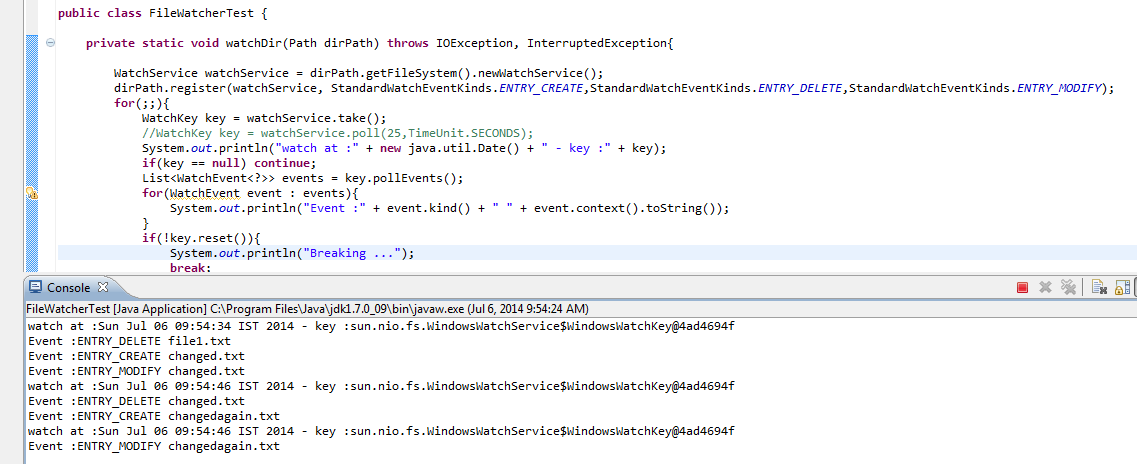Hibernate Annotations - OnetoOne Mapping
Hibernate Annotations JPA 1
One to One Mapping
Class Employee.java
package com.domain;import javax.persistence.Column;
import javax.persistence.Entity;
import javax.persistence.Id;
import javax.persistence.OneToOne;
import javax.persistence.PrimaryKeyJoinColumn;
import javax.persistence.Table;
@Entity
@Table(name = "employeeaddress")
public class EmployeeAddress implements java.io.Serializable {
private static final long serialVersionUID = 1L;
// Fields
private Integer employeeid;
private String address;
private Employee employee;
// Constructors
/** default constructor */
public EmployeeAddress() {
}
/** minimal constructor */
public EmployeeAddress(Integer employeeid) {
this.employeeid = employeeid;
}
/** full constructor */
public EmployeeAddress(Integer employeeid, String address) {
this.employeeid = employeeid;
this.address = address;
}
// Property accessors
@Id
@Column(name = "EMPLOYEEID", unique = true, nullable = false, insertable = true, updatable = true)
public Integer getEmployeeid() {
return this.employeeid;
}
public void setEmployeeid(Integer employeeid) {
this.employeeid = employeeid;
}
@Column(name = "ADDRESS", unique = false, nullable = true, insertable = true, updatable = true, length = 45)
public String getAddress() {
return this.address;
}
public void setAddress(String address) {
this.address = address;
}
@OneToOne
@PrimaryKeyJoinColumn
public Employee getEmployee() {
return employee;
}
public void setEmployee(Employee employee) {
this.employee = employee;
}
}
Class EmployeeAddress.java
package com.domain;
import javax.persistence.Column;
import javax.persistence.Entity;
import javax.persistence.Id;
import javax.persistence.OneToOne;
import javax.persistence.PrimaryKeyJoinColumn;
import javax.persistence.Table;
@Entity
@Table(name = "employeeaddress")
public class EmployeeAddress implements java.io.Serializable {
private static final long serialVersionUID = 1L;
// Fields
private Integer employeeid;
private String address;
private Employee employee;
// Constructors
/** default constructor */
public EmployeeAddress() {
}
/** minimal constructor */
public EmployeeAddress(Integer employeeid) {
this.employeeid = employeeid;
}
/** full constructor */
public EmployeeAddress(Integer employeeid, String address) {
this.employeeid = employeeid;
this.address = address;
}
// Property accessors
@Id
@Column(name = "EMPLOYEEID", unique = true, nullable = false, insertable = true, updatable = true)
public Integer getEmployeeid() {
return this.employeeid;
}
public void setEmployeeid(Integer employeeid) {
this.employeeid = employeeid;
}
@Column(name = "ADDRESS", unique = false, nullable = true, insertable = true, updatable = true, length = 45)
public String getAddress() {
return this.address;
}
public void setAddress(String address) {
this.address = address;
}
@OneToOne
@PrimaryKeyJoinColumn
public Employee getEmployee() {
return employee;
}
public void setEmployee(Employee employee) {
this.employee = employee;
}
}
Test method to save the Employee object
public void test() {
Employee e = new Employee();
e.setEmployeeid(new Random().nextInt(10000));
e.setName("MyName");
EmployeeAddress ed = new EmployeeAddress();
ed.setEmployeeid(e.getEmployeeid());
ed.setAddress("MyCity");
ed.setEmployee(e);
e.setEmployeeaddress(ed);
// Create session with AnnotationConfiguration
Session session = null;
try {
SessionFactory sf = new AnnotationConfiguration().configure().buildSessionFactory();
session = sf.openSession();
session.beginTransaction();
session.save(e);
session.getTransaction().commit();
} catch (HibernateException ex) {
ex.printStackTrace();
}finally{
if(session != null) session.close();
}
}

602DE2CF18
ReplyDeletehacker kirala
kiralık hacker
tütün dünyası
-
-
52B1993CA4
ReplyDeleteTakipçi Satın Al
M3u Listesi
Google Konum Ekleme
Danone Sürpriz Kodları
War Robots Hediye Kodu
D301C666E7
ReplyDeletesteroid al
Görüntülü Show
steroid satın al